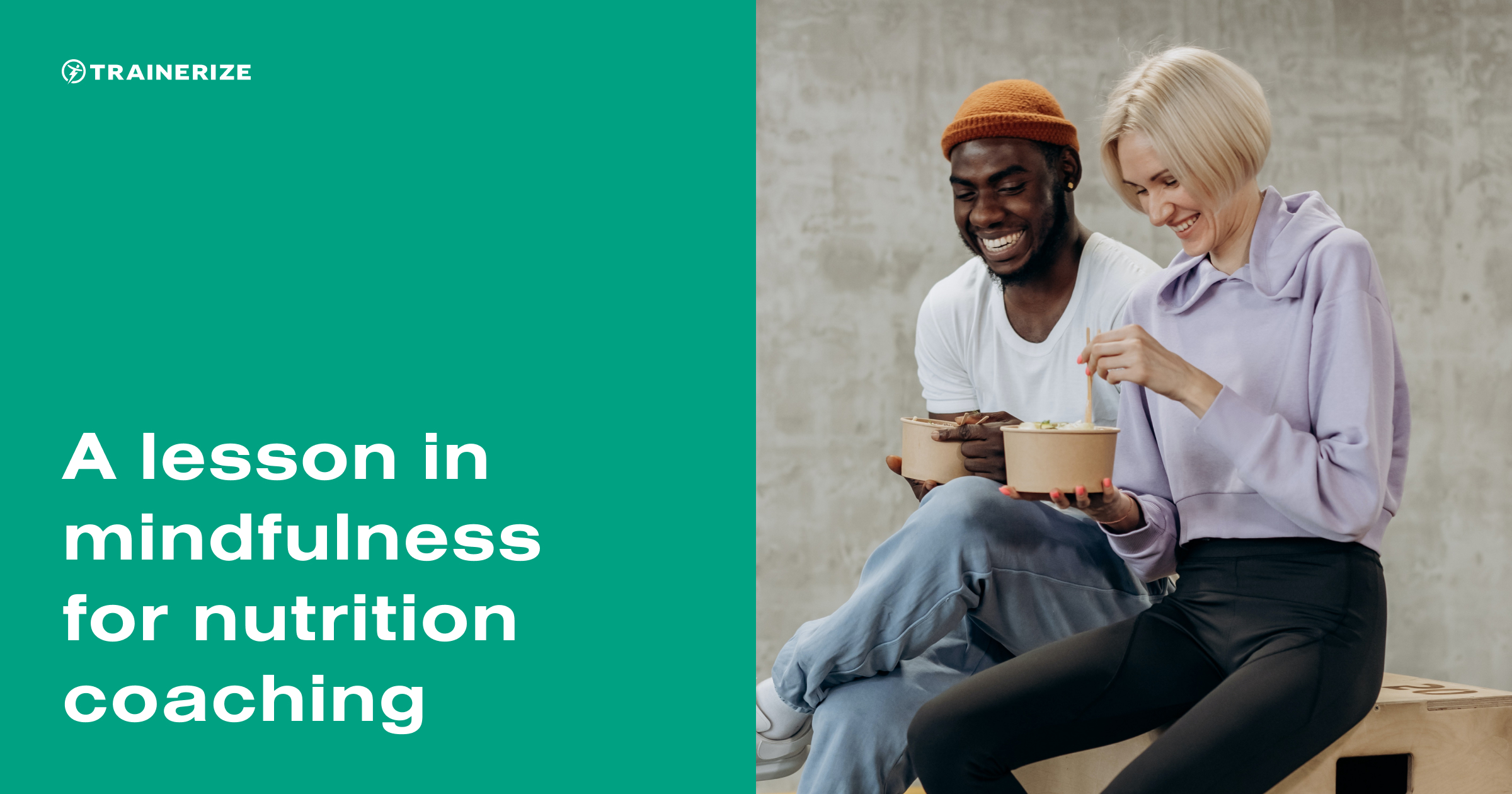
You could be a certified Nutrition Coach with a Master’s in Nutrition—but you will still have a day where you realize that your work is so much more than just meal plans.
Nutrition coaching can be really emotional—there are cultural considerations, trauma considerations, and mental health considerations, among many other things. It’s essential to be sensitive to these concerns and create a safe space for these conversations.
Here’s a few ways to be mindful of the complexity of food in your coaching relationship.
Start slow—and communicate
Calorie counting, fixed meal plans, committing to eating healthier—this can be tough for clients to commit to when they haven’t been thinking about these things. Instead of asking your clients to make an abrupt 360° change, focus on smaller changes that will eventually add up to 360° coaching!
For example, if a client is used to eating bacon, eggs and toast every morning for breakfast and you ask them to have a green smoothie instead, that’s a big change for that client. They’re not used to buying spinach and frozen berries and chia seeds on the regular. Plus, going from warm comforting bacon and eggs to cold greens is not the average person’s first choice.
Instead, ask them to switch from regular bacon to turkey bacon, or cut down the amount of bacon from two pieces to one. Perhaps look into what kind of toast they are eating and recommend a whole wheat, minimally processed brand. Maybe even swap one slice of toast for some fruit and explain why that swap would be a smart choice for their goals. Ask them to make smaller changes, based on their goals, and when they achieve those small, realistic habits on a daily basis, that will get the ball rolling. Their small daily wins will motivate them to want to do more.
Don’t overwhelm them. Small habits = big results in the long term.
Think about their WHY—and keep an open mind
There are many reasons why clients want to get started with nutrition coaching. They may want to achieve a certain look. They may have discovered some dietary restrictions or health concerns. Or maybe they’re struggling with food due to upheavals and challenges in their lives.
Some more possible motivations:
- They want to feel confident in their bodies
- They’re hoping to increase energy levels and boost their mood
- They want to stop emotional eating
- They’re managing IBS symptoms
- They need to eat right to manage an autoimmune disease
Remember: every person on this planet has a life that’s just as vivid and complex as your own. We all have different experiences that have shaped us. Regardless of what you think of a client’s priorities, you need to take their concerns seriously and lead with empathy. There are social, psychological, emotional and many more determinants that shape one’s attitude and influence their food choices. In order to help your clients better, do your best to learn as much as you can about your client.
Maybe this means having a genuine conversation about food. Perhaps update your nutrition consult or questionnaire with more open ended questions. Try to focus on helping them with their motivations, and come up with a unique solution for them. Try to layer in a level of empathy and open-mindedness about people’s nutrition habits—and talk about food for its benefits, not for its drawbacks.
You’ll keep learning with every client. So be growth-minded, think with empathy, and communicate as much as possible.
Be patient and take your time
Just like there’s no one way to eat right, there’s no one way to achieve one’s goals.
For some, it might mean a strict meal plan with daily check-ins. For others, it might start with simply educating them on the importance of healthy eating so they can truly understand why they need to start making nutrition a priority.
Every client will be learning and improving at their own pace.
You might have one client who is just starting to realize they need to make some changes.
Another client might be somewhere in between where they are aware they should be eating more protein and vegetables but they’re not sure if they’re getting their portions right.
Another client could be looking to enter a bodybuilding competition. They might be willing to commit to a full meal plan with daily check-ins and 100% tracking of calories and macros.
When you chat with your clients during their consultation (we recommend through video), you’ll get a sense of how committed they are.
Whatever chapter your client is at, remember that it won’t always be smooth sailing and you’ll need to be there for them to encourage them along the way. If you aren’t sure you understand their habits, ask questions—don’t assume!
At times it may feel like you’re taking two steps forward and one step back but don’t be afraid to adjust your plan for them. For example, if you’re noticing your client is having a hard time sticking to their meal plan, don’t be afraid to step away from the meal plan and focus on some daily habits instead. Perhaps focusing on portion control, eating whole foods, and educating on reading food labels before you get into meal plans or calorie goals again. Start slow, focus on their needs, and be patient. They’ll feel the impact!
🍓 We’re excited to share that a better new way to deliver nutrition coaching is here! From allowing clients to track their meals right within the app to delivering sample, custom meal plan suggestions in seconds and so much more, you’ll empower your clients to make healthier choices and level up on their health. Read our latest blog.
